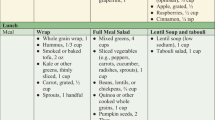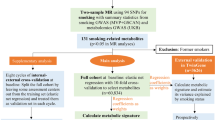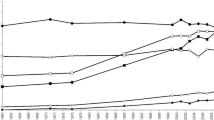Abstract
Ethanol is a molecule of enduring research interest because its consumption has important social as well as medical implications. With excessive ethanol consumption, there is higher prevalence for hypertension, stroke, cardiomyopathy, and arrhythmias. A principal mechanism by which ethanol exerts these cardiovascular effects is through modulation of blood pressure. In this article, we focus on recent research that pursues information on the effects of alcohol on blood pressure in human subjects, regardless of whether they have hypertension or not. Known means by which alcohol exerts hemodynamic effects are briefly covered, and insights on novel biomediators, such as endothelin and gene-based mechanisms, are presented. Newer tools, such as the Alcohol Use Disorders Identification Test-Consumption Questions (AUDIT-C) survey and carbohydrate-deficient transferrin (CDT) serum test, are also covered. Reducing excessive alcohol intake can produce a reduction in blood pressure of up to 4 mm Hg, on average, which could substantially affect the rates of stroke and ischemic heart disease.
Similar content being viewed by others
References and Recommended Reading
Lian C: L’alcolisme cause d’hipertension arterielle. Bull Acadamie Natl Med 1915, 74:525–528. The finding that it “took” 2.5 L of wine a day to produce the noted consequences indicated that huge amounts of ethanol were required to produce an increase in blood pressure, and the findings were mostly ignored for the next 60 years.
Klatsky AL: Alcohol and stroke: an epidemiological labyrinth. Stroke 2005, 36:1835–1836. Perhaps the “godfather” of alcohol and blood pressure study, Klatsky’s exemplary work at Kaiser Permanente and his continued efforts to define and remedy the public health consequences of excessive ethanol intake are a must-read for those interested in more than a cursory understanding of the topic.
Klatsky AL: Drink to your health? Sci Am 2003, 288:74–81.
Mcfadden CB, Brensinger CM, Berlin JA, Townsend RR: Systematic review of the effect of daily alcohol intake on blood pressure. Am J Hypertens 2005, 18:276–286.
Rosito GA, Fuchs FD, Duncan BB: Dose-dependent biphasic effect of ethanol on 24-h blood pressure in normotensive subjects. Am J Hypertens 1999, 12:236–240.
Abe H, Kawano Y, Kojima S, et al.: Biphasic effects of repeated alcohol intake on 24-hour blood pressure in hypertensive patients. Circulation 1994, 89:2626–2633. One of the first studies to recognize (through ABP monitoring) that alcohol lowers, as well as raises, blood pressure.
Huntgeburth M, Ten Freyhaus H, Rosenkranz S: Alcohol consumption and hypertension. Curr Hypertens Rep 2005, 7:180–185.
Lucas DL, Brown RA, Wassef M, Giles TD: Alcohol and the cardiovascular system research challenges and opportunities. J Am Coll Cardiol 2005, 45:1916–1924. This is a state-of-the-art paper in a prominent Cardiology journal. Its coverage is more comprehensive (ie, it covers more than blood pressure) than our report, and it has an excellent segment on genetics and molecular/cellular mechanisms of the effects of ethanol.
Sullivan LE, Fiellin DA, O’Connor PG: The prevalence and impact of alcohol problems in major depression: a systematic review. Am J Med 2005, 118:330–341.
Klatsky AL, Friedman GD, Armstrong MA: The relationships between alcoholic beverage use and other traits to blood pressure: a new Kaiser Permanente study. Circulation 1986, 73:628–636.
Zilkens RR, Burke V, Hodgson JM, et al.: Red wine and beer elevate blood pressure in normotensive men. Hypertension 2005, 45:874–879. Work from this group in Perth, Australia, has consistently contributed to the ethanol literature, giving their long track record of human clinical trial investigations of the mechanisms behind ethanol’s effects on blood pressure, with particular emphasis on (but certainly not limited to) catecholamines.
Klatsky AL: Alcohol and cardiovascular diseases: a historical overview. Ann N Y Acad Sci 2002, 957:7–15.
Reims HM, Kjeldsen SE, Brady WE, et al.: Alcohol consumption and cardiovascular risk in hypertensives with left ventricular hypertrophy: the LIFE study. J Hum Hypertens 2004, 18:381–389.
Smith A, Karalliedde J, de Angelis L, et al.: Aortic pulse wave velocity and albuminuria in patients with type 2 diabetes. J Am Soc Nephrol 2005, 16:1069–1075.
Bau PF, Bau CH, Naujorks AA, Rosito GA: Early and late effects of alcohol ingestion on blood pressure and endothelial function. Alcohol 2005, 37:53–58.
Stranges S, Wu T, Dorn JM, et al.: Relationship of alcohol drinking pattern to risk of hypertension: a populationbased study. Hypertension 2004, 44:813–819.
Wildman RP, Gu D, Muntner P, et al.: Alcohol intake and hypertension subtypes in Chinese men. J Hypertens 2005, 23:737–743.
Yoshita K, Miura K, Morikawa Y, et al.: Relationship of alcohol consumption to 7-year blood pressure change in Japanese men. J Hypertens 2005, 23:1485–1490.
Schroder H, Ferrandez O, Jimenez CJ, et al.: Cardiovascular risk profile and type of alcohol beverage consumption: a population-based study. Ann Nutr Metab 2005, 49:100–106.
Wakabayashi I: Sensitivity of circulatory response to alcohol influences the relationship between alcohol consumption and blood pressure in Orientals. Blood Press 2005, 14:238–244.
O’Rourke MF, Kelly RP, Avolio AP, Hayward C: Effects of arterial dilator agents on central aortic systolic pressure and on left ventricular hydraulic load. Am J Cardiol 1989, 63(suppl I):I-38–I-44.
Katakam R, Townsend RR: What’s in a pulse? J Clin Hypertens (Greenwich) 2006, 8:140–141.
Karatzi KN, Papamichael CM, Karatzis EN, et al.: Red wine acutely induces favorable effects on wave reflections and central pressures in coronary artery disease patients. Am J Hypertens 2005, 18:1161–1167.
van Trijp MJ, Bos WJ, van der Schouw YT, et al.: Alcohol and arterial wave reflections in middle aged and elderly men. Eur J Clin Invest 2005, 35:615–621.
Ireland M, Vandongen R, Davidson L, et al.: Pressor effect of moderate alcohol consumption in man: a proposed mechanism. Clin Exp Pharmacol Physiol 1983, 10:375–379.
Hsieh ST, Saito K, Miyajima T, et al.: Effects of alcohol moderation on blood pressure and intracellular cations in mild essential hypertension. Am J Hypertens 1995, 8:696–703.
Balldin J, Andersson M, Berggren U, et al.: Inverse relationship between central serotonergic neurotransmission and blood pressure in alcohol-dependent male subjects. J Neural Transm 2006, Epub ahead of print.
Obata A, Morimoto K, Sato H, et al.: Effects of alcohol on hemodynamic and cardiovascular reaction in different genotypes. Psychiatry Res 2005, 139:65–72.
National Center for Bi-Informatics: http://www.ncbi.nlm. nih.gov/entrez/query.fcgi?db=gene&cmd=Retrieve&dopt=full_report&list_uids=217. Accessed February 25, 2006.
Li Y, Zhang D, Jin W, et al.: Mitochondrial aldehyde dehydrogenase-2 (ALDH2) Glu504Lys polymorphism contributes to the variation in efficacy of sublingual nitroglycerin. J Clin Invest 2006, 116:506–511.
Gomez A, Conde A, Santana JM, Jorrin A: Diagnostic usefulness of brief versions of Alcohol Use Disorders Identification Test (AUDIT) for detecting hazardous drinkers in primary care settings. J Stud Alcohol 2005, 66:305–308.
Bush K, Kivlahan DR, McDonell MB, et al.: The AUDIT alcohol consumption questions (AUDIT-C): an effective brief screening test for problem drinking. Ambulatory Care Quality Improvement Project (ACQUIP). Alcohol Use Disorders Identification Test. Arch Intern Med 1998, 158:1789–1795.
Stibler H: Carbohydrate-deficient transferrin in serum: a new marker of potentially harmful alcohol consumption reviewed. Clin Chem 1991, 37:2029–2037.
Lieber CS: Carbohydrate deficient transferrin in alcoholic liver disease: mechanisms and clinical implications. Alcohol 1999, 19:249–254.
Dillie KS, Mundt M, French MT, Fleming MF: Cost-benefit analysis of a new alcohol biomarker, carbohydrate deficient transferrin, in a chronic illness primary care sample. Alcohol Clin Exp Res 2005, 29:2008–2014.
Xin X, He J, Frontini MG, et al.: Effects of alcohol reduction on blood pressure: a meta-analysis of randomized controlled trials. Hypertension 2001, 38:1112–1117. This meta-analysis represents careful, thorough work emanating from the School of Public Health in Tulane. Its data and conclusions were incorporated into JNC 7.
SjÖgren H, Eriksson A, Brostrom G, Ahlm K: Quantification of alcohol-related mortality in Sweden. Alcohol Alcohol 2000, 35:601–611.
Bulpitt CJ: How many alcoholic drinks might benefit an older person with hypertension? J Hypertens 2005, 23:1947–1951. This review examines the effects of lowering alcohol consumption in terms of blood pressure and CHD. The relationship of CHD and stroke and alcohol consumption, and the benefits and disadvantages of alcohol consumption in the general population are discussed, and the answer to the titular question is “16 per week.”.
Miller PM, Anton RF, Egan BM, et al.: Excessive alcohol consumption and hypertension: clinical implications of current research. J Clin Hypertens (Greenwich) 2005, 7:346–351. Engaging review of alcohol and hypertension written by an amalgam of behaviorists, clinical pharmacologists, and outstanding academic clinicians who actually see patients. The office-based advice is well worth the read.
Funatsu K, Yamashita T, Nakamura H: Effect of coffee intake on blood pressure in male habitual alcohol drinkers. Hypertens Res 2005, 28:521–527.
Wikipedia®: http://en.wikipedia.org/wiki/Herman_Smith-Johannsen. Accessed February 22, 2006.
Author information
Authors and Affiliations
Corresponding author
Rights and permissions
About this article
Cite this article
Kodavali, L., Townsend, R.R. Alcohol and its relationship to blood pressure. Current Science Inc 8, 338–344 (2006). https://doi.org/10.1007/s11906-006-0074-z
Issue Date:
DOI: https://doi.org/10.1007/s11906-006-0074-z




